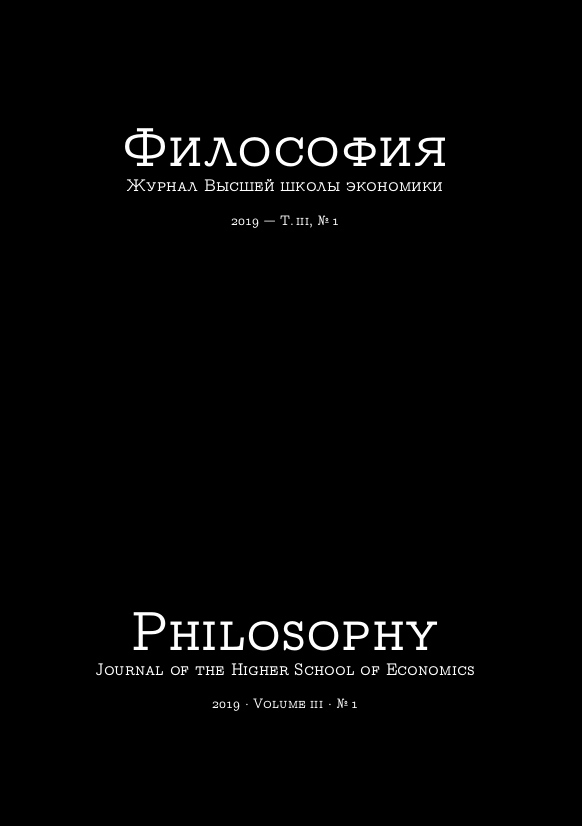Knowing the Unknowable
Abstract
Philosophical search presupposes not only the constant expansion of the frontiers of knowledge but also an attempt to go beyond these boundaries, the effort of knowing the unknowable. An equally important task is to find an adequate language to express the inexpressible. Antiquity offers different strategies for philosophical work with the sacred and transcendent. This volume of Philosophy. Journal of the Higher School of Economics presents some of these strategies.
The Euthyphro, a dialogue from the Corpus Platonicum, is an example of such an attempt to give a strict philosophical definition of the concept of piety. Yuriy Shichalin (Museum Graeco-Latinum, Moscow) argues in his article “Notes on the Euthyphro from the Corpus Platonicum” that the notion of ‘pious’ was discussed in the Academy as the background for creating late Plato’s dialogue Laws. Thus, the Euthyphro reflects the critical consideration of various definitions of the concept. As noticed by Yuriy Shichalin, Xenocrates devoted the special treatise to the problem of piety, and he can be a person hidden behind the figure of the prophet Euthyphro.
Philo of Alexandria forms the roots of what may be called the dialectic of apophatic theology in patristic thought. As Ilaria Ramelli (Catholic University; Angelicum; Oxford University) shows, Philo develops a ‘strategy of differentiation’ of the God’s unknowable ousia (essence) and God’s knowable dynameis (powers). For Philo, these powers are associated with the concept of the divine Logos, which he understands as “intelligible world” in the spirit of the middle Platonism.
The article by Georgiana Huian (The University of Bern) is devoted to what can be called ‘negative theology’ in Plotinus. She argues that the transcendental nature of the One, its absolute otherness, requires a specific language for describing it. The Enneads reflect the search for this language, and Plotinus gives philosophical justification for the constant usage of negations. Thus, the via negativa leaves a gap, in which the Inexpressible can receive names or implicit descriptions.
Anna Grünert (St. Tikhon’s Orthodox University, Moscow) continues the discussion of knowing the unknowable. She considers particular cases when Basil of Caesarea uses the vision-related vocabulary. Analyzing the Hexaemeron, Anna Grünert concludes that the concept of
contemplation plays a crucial role in the natural theology underlying Basil’s pedagogy in this text. She also notes the influence of Philo of Alexandria on Basil’s attitude on the “best human sense.”
An article by Mariya Varlamova (The Saint Petersburg State University of Aerospace Instrumentation, Saint Petersburg) is devoted to the dispute on the prime matter between John Philoponus and Simplicius. Philoponus denies the existence of unlimited matter and insists that the first substrate of physical bodies must be either a three-dimensional extension or body as such. By endowing matter with its own logos, Philoponus considers it not as pure potentiality, known only by analogy, but as an entity that exists as something, although not separately.
In the Translations and Critical Editions the reader will find new translations of Aurelius Augustinus’ Epistola 166 by Polina Semenova (the University of Cologne), Basil’s of Caesarea First Homily of Hexaemeron by Olga Alieva (HSE, Moscow), and Galen’s Exercise with a Small
Ball by Irina Prolygina (A. I. Yevdokimov State University of Medicine and Dentistry, Moscow).
Finally, Philosophical Criticism contains reviews on the new translations of Plato and Origen, as well as on some latest philosophical books.
Olga Alieva and Alexey Pleshkov
Downloads






